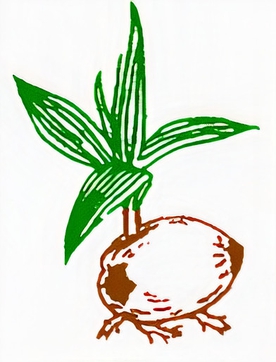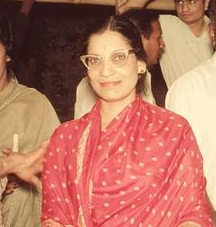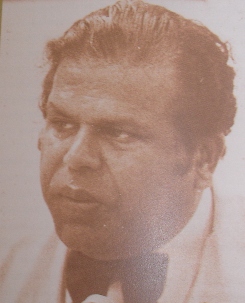Related Research Articles

Mahendra Pal Chaudhry is a Fijian politician and the leader of the Fiji Labour Party. Following a historic election in which he defeated the long-time former leader,Sitiveni Rabuka,the former trade union leader became Fiji's first Indo-Fijian Prime Minister on 19 May 1999,but exactly one year later,on 19 May 2000 he and most of his Cabinet were taken hostage by coup leader George Speight,in the Fiji coup of 2000. Unable to exercise his duties,he and his ministers were sacked by President Ratu Sir Kamisese Mara on 27 May;Mara intended to assume emergency powers himself but was himself deposed by the military leader,Commodore Frank Bainimarama.

The Fiji Labour Party,also known as Fiji Labour,is a political party in Fiji. Most of its support is from the Indo-Fijian community,although it is officially multiracial and its first leader was an indigenous Fijian,Dr. Timoci Bavadra. The party has been elected to power twice,with Timoci Bavadra and Mahendra Chaudhry becoming prime minister in 1987 and 1999 respectively. On both occasions,the resulting government was rapidly overthrown by a coup.

The United Fiji Party was a political party in Fiji. It was founded in 2001 by Prime Minister Laisenia Qarase as a power base;it absorbed most of the Christian Democratic Alliance and other conservative groups,and its endorsement by the Great Council of Chiefs (Bose Levu Vakaturaga) caused it to be widely seen as the successor to the Alliance Party,the former ruling party that had dominated Fijian politics from the 1960s to the 1980s. It drew its support mainly from indigenous Fijiians.

Irene Jai Narayan was an Indian-born teacher and politician,who had a significant influence on politics in Fiji. She came to Fiji in 1959 after marrying Jai Narayan,a well known school Principal in Suva,and began her career as a teacher. She taught in DAV Girls School and MGM High School in Suva before entering politics.

Siddiq Moidin Koya was a Fijian politician,Statesman and Opposition leader. He succeeded to the leadership of the mostly Indo-Fijian National Federation Party (NFP) on the death of the party's founder,A. D. Patel,in October 1969,remaining in this post until 1977. He later served a second term as leader of the NFP,from 1984 to 1987.

The National Federation Party is a Fijian political party founded by A. D. Patel in November 1968,as a merger of the Federation Party and the National Democratic Party. Though it claims to represent all Fiji Islanders,it is supported,in practice,almost exclusively by Indo-Fijians whose ancestors had come to Fiji between 1879 and 1916,mostly as indentured labourers. However,in the 2018 general election,the party recorded a considerable change in its support base due to the inclusion of more indigenous Fijian candidates.
The Suva City Council is the municipal law-making body of the city of Suva,Fiji's capital. It consists of 20 Councillors,elected for three-year terms from four multi-member constituencies called wards. Councillors,who are elected by residents,landowners,and representatives of corporations owning or occupying ratable property in Suva,elect a Lord Mayor and Deputy Lord Mayor from among their own members;they serve one-year terms and are eligible for reelection. Since the dismissal of the councillors by the interim military government,the City Council is run by a Special Administrator appointed by the Ministry of Local Government.

Local elections in Fiji are held for two cities and ten towns. Each city or town has a council comprising between 8 and 20 members,elected for three-year terms,although the government announced legislation on 15 February 2006 to extend the term to four years. Each city or town council elects from among its own members a Mayor for one year. Consecutive terms are permitted.

Local elections were held in Fiji in October 2002. The results allowed the three major political parties,Soqosoqo Duavata ni Lewenivanua (SDL),the Fiji Labour Party (FLP) and the National Federation Party (NFP) to claim a victory of sorts. The elections,which take place every three years,were for two city councils and ten town councils throughout Fiji.

Local elections were held in Fiji on 22 October 2005 to elect the councils of eleven municipalities. In Suva,the elections for the Suva City Council were postponed until 12 November due to the death of two candidates;the death of a candidate in Lautoka also resulted in the poll postponement in one of the four wards.

Krishna Datt, last name sometimes spelt as Dutt,is a Fijian politician of Indian descent. Datt served as Principal of Suva Grammar School,where he participated in the national teachers' strikes in 1985,which launched his political career with the Fiji Labour Party.

The People's Coalition was an alliance of three political parties in Fiji,formed in March 1999 to contest the parliamentary election to be held in May that year. The three parties were the Fiji Labour Party (FLP),led by Mahendra Chaudhry,the Fijian Association Party (FAP),led by Adi Kuini Speed,and the Party of National Unity (PANU),led by Apisai Tora.
Gyani Nand was a Fijian politician of Indian descent. He was born in Tavua and taught in a number of primary and high schools then worked as a hansard reporter and later as a diplomat in Australia and England before starting his political career.
Attar Singh is an Indo-Fijian trade unionist. From 2002 to 2018 he was General Secretary of the Fiji Islands Council of Trade Unions (FICTU),one of two major umbrella bodies for trade unions in Fiji.

Charan Jeath Singh is an Indo-Fijian businessman,politician,and Cabinet Minister. From 1992 to 2005 he was Mayor of Labasa. He is the founder of the CJS Group of companies.
Parmod Chand is a Fijian politician and former member of the Parliament of Fiji. He is a member of the National Federation Party (NFP).
Harilal Manilal Patel is a Fiji Indian lawyer who has also been a member of the House of Representatives of Fiji.
Shiromaniam Madhavan,son of a founding member of the National Federation Party (NFP),was a Fiji Indian politician who served in the Labasa Town Council and the House of Representatives. He contested numerous elections for different political parties.
References
- 1 2 Howard, Michael (1991). Fiji: Race and politics in an island state . Vancouver: UBC Press. pp. 379. ISBN 0-7748-0368-1.
- ↑ Achievements of FLP
- ↑ Fijian polls under disputed constitution
- ↑ Chaudhry explains Baba's expulsion